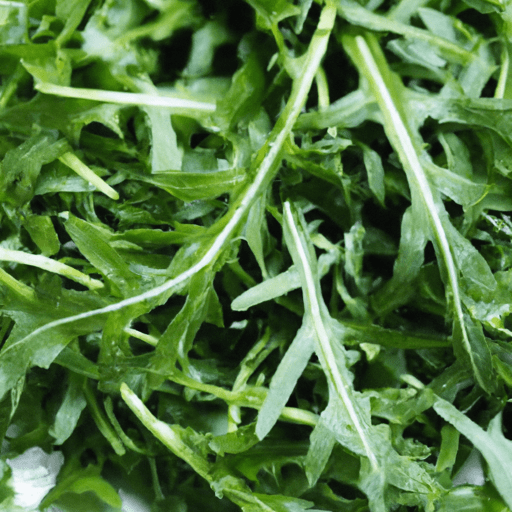Discover the Fresh and Peppery Rocket
Rocket, also known as arugula, is a leafy green that has gained popularity in the culinary world for its unique flavor and versatility in a wide array of dishes. With its distinct peppery taste, it adds a refreshing and vibrant element to any meal. In this blog post, we will explore the delightful world of rocket, discussing its taste, common uses in cooking, nutritional value, and some fascinating facts about this leafy green.
Taste and Aroma
One of the defining characteristics of rocket is its sharp, peppery flavor. This assertive taste is often accompanied by a subtle nuttiness, adding depth to any dish it graces. Its aromatic quality is akin to a mix of mustard greens and radishes, making it an exciting addition to salads, sandwiches, and more.
Versatile Uses in Cooking
Rocket is incredibly versatile, lending itself to a multitude of culinary preparations. Here are some common uses:
1. Salads: The fresh, crisp leaves of rocket make it a popular choice for salads. Its peppery kick adds a delightful contrast to milder ingredients like tomatoes, cucumbers, and feta cheese. Combine it with other leafy greens for a well-balanced salad that bursts with flavor.
2. Pizzas and Flatbreads: Rocket’s robust flavor pairs beautifully with the richness of melted cheese, making it an excellent topping for pizzas and flatbreads. Adding a handful of leaves to your pizza just before serving provides a vibrant burst of taste and color.
3. Pesto: For an exciting twist on the classic basil pesto, you can substitute some of the basil with rocket. This creates a delectable fusion of flavors that works wonderfully with pasta, bruschetta, or grilled meats.
4. Sandwiches: Elevate your sandwiches by adding a handful of rocket leaves. Its peppery flavor cuts through the richness of fillings like cheese, meats, or roasted vegetables, adding a delightful zing.
5. Soups and Stews: While traditionally served raw, rocket can also be incorporated into cooked dishes such as soups and stews. Add it towards the end of cooking to preserve its unique taste and texture.
Nutritional Value
Beyond its scrumptious flavor, rocket offers several health benefits. It is low in calories but packed with essential nutrients, including:
- Vitamins and Minerals: Rocket is an excellent source of vitamins A, C, and K, as well as folate, calcium, and potassium.
- Antioxidants: It contains various antioxidants, such as beta-carotene and vitamin C, which help protect the body against harmful free radicals.
- Good for Digestion: Rocket’s high fiber content promotes healthy digestion and can alleviate symptoms of constipation.
- Hydration: With its high water content, incorporating rocket into meals can be a delicious way to increase your hydration.
Interesting Facts and History
- Rocket is native to the Mediterranean region and has a rich culinary history dating back thousands of years. It was enjoyed by ancient Romans and Egyptians for both its taste and medicinal properties.
- The name “rocket” is believed to have originated from the Italian word “rucola” or “ruchetta.”
- In some countries, such as Italy, rocket is included in “mixed salad” bags sold in grocery stores, highlighting its popularity.
- Rocket is a member of the Brassicaceae family, which includes other well-known vegetables like broccoli, cabbage, and kale.
- The flowers of rocket are edible and can add a pop of color and mild spiciness to salads or used as a garnish.
In Conclusion
Rocket, with its peppery tang and versatility, has become a beloved ingredient in kitchens worldwide. Whether you toss it into a salad, incorporate it into a pizza, or experiment with it in a pesto recipe, rocket is sure to enhance your culinary creations with its fresh and vibrant flavors. Embrace this leafy green’s incredible taste, nutritional value, and fascinating history, and let your culinary adventures soar to new heights!
Rocket
- Origin: Rocket, also known as arugula, is native to the Mediterranean region. It has been cultivated for centuries and is widely used in European and Mediterranean cuisines.
- Common Uses: Rocket is well-known for its distinct peppery and slightly bitter taste. It is often used as a salad green, either as a main ingredient or as a flavor enhancer. It can also be added to sandwiches, pizzas, pasta dishes, soups, and pesto sauces to add a tangy kick.
- Nutritional Benefits: Rocket is a low-calorie leafy green that packs a nutritional punch. It is an excellent source of vitamins A, C, and K. It also contains significant amounts of folate, calcium, iron, and potassium. Additionally, rocket is rich in antioxidants and phytochemicals that have been associated with various health benefits.
- Unique Properties: One unique property of rocket is its high nitrate content, which contributes to its peppery flavor. While some people may find this taste strong, others enjoy it. Additionally, rocket leaves have a delicate texture and can wilt quickly, so it is best to consume them soon after purchase.
- Historical Significance: The use of rocket in cuisine dates back centuries, particularly in Mediterranean cooking. It was valued for its distinct flavor and was often used as a medicinal herb due to its perceived digestive and aphrodisiac properties. Today, rocket remains a popular culinary ingredient in many parts of the world.




Use the share button below if you liked it.
It makes me smile, when I see it.